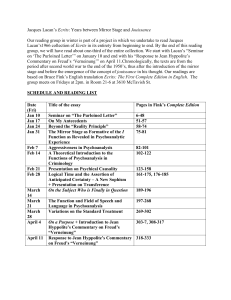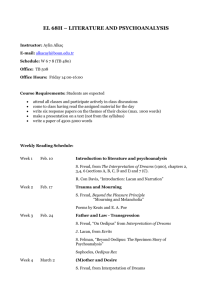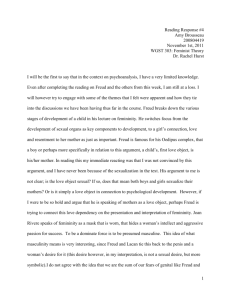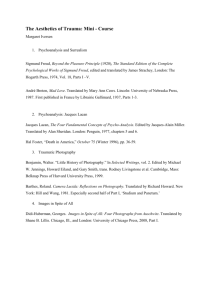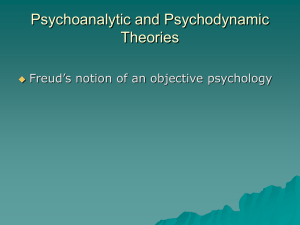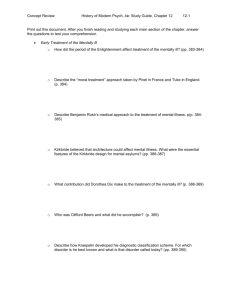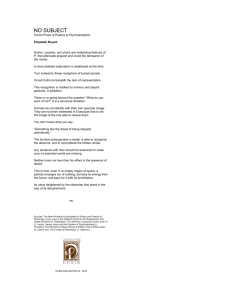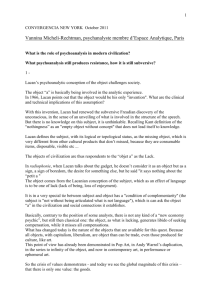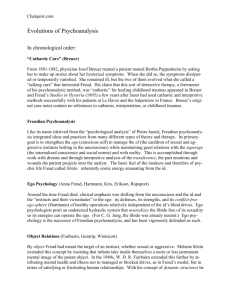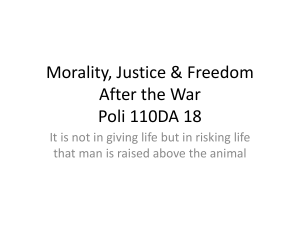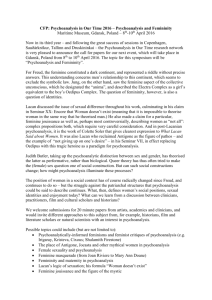Betty Bernardo Fuks - Apres-Coup Psychoanalytic Organization
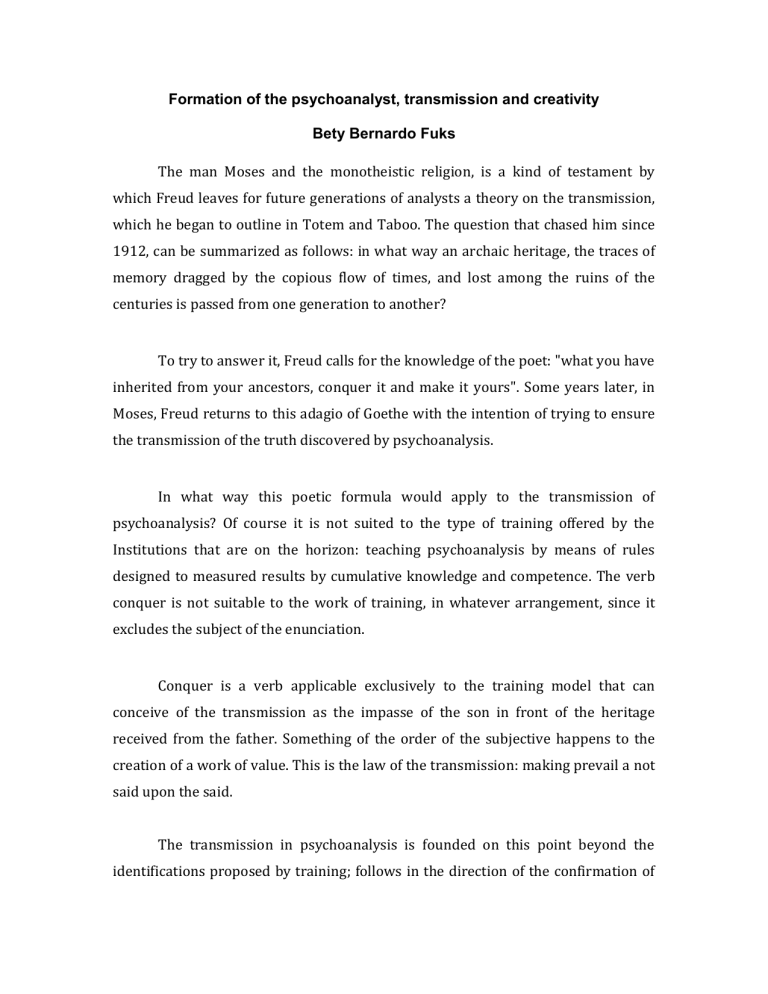
Formation of the psychoanalyst, transmission and creativity
Bety Bernardo Fuks
The man Moses and the monotheistic religion, is a kind of testament by which Freud leaves for future generations of analysts a theory on the transmission, which he began to outline in Totem and Taboo. The question that chased him since
1912, can be summarized as follows: in what way an archaic heritage, the traces of memory dragged by the copious flow of times, and lost among the ruins of the centuries is passed from one generation to another?
To try to answer it, Freud calls for the knowledge of the poet: "what you have inherited from your ancestors, conquer it and make it yours". Some years later, in
Moses, Freud returns to this adagio of Goethe with the intention of trying to ensure the transmission of the truth discovered by psychoanalysis.
In what way this poetic formula would apply to the transmission of psychoanalysis? Of course it is not suited to the type of training offered by the
Institutions that are on the horizon: teaching psychoanalysis by means of rules designed to measured results by cumulative knowledge and competence. The verb conquer is not suitable to the work of training, in whatever arrangement, since it excludes the subject of the enunciation.
Conquer is a verb applicable exclusively to the training model that can conceive of the transmission as the impasse of the son in front of the heritage received from the father. Something of the order of the subjective happens to the creation of a work of value. This is the law of the transmission: making prevail a not said upon the said.
The transmission in psychoanalysis is founded on this point beyond the identifications proposed by training; follows in the direction of the confirmation of
issues relating to the real that for Lacan underlies the fantasy. And in this sense I would say, with this master, worthy heir of Freud, that what we can transmit in psychoanalysis is the awakening of the irreducible alterity of the unconscious.
This, in fact it was the greatest contribution of Lacan to psychoanalysis. It retrieves the germinal experience of psychoanalysis, the point 0 that we return to on our daily lives so that something new is written. Here I ask help to literature to better convey what I want to say.
I think that unlike the protagonist of the Third Margin, tale of Guimarães
Rosa, who refused the convening of the father to replace him in the continuous flow of the river, the third margin, Lacan occupied the symbolic place of the transmission of a tradition of history and experiences of value or texts that survive the death of the author. Plunged into the bottom of the river of transmission and, letting himself go by the rapids of Freud’s writing, Lacan came to reaching a said for a not said, rewriting the theory and creating an unique work - what made him occupy the place of one of the great thinkers of psychoanalysis and culture. Said in another way: while recapturing the Freudian deed, to the whites and at the margins of the
Complete Works, Lacan can enunciate something that had not yet been said on the psychoanalytical field, in harmony with the urgencies of his time.
Thus, in order to deal with the precariousness of analysts of the 1950s, Lacan created the syntagm "return to Freud", located psychoanalysis as inherent to the path taken by civilization in modernity and, finally, rescued from the bottom of the river the fact that from the beginning, psychoanalysis is a praxis supported on an ethic that ties us the while subjects to the real.
"Sailing is necessary; living is not necessary
”.
I want the spirit of this phrase, shape transformed to match it to how I am:
Living is not necessary; what is necessary is creating”. (Fernando Pessoa http://www.iwise.com/EKElJ ).
With this, I would like to propose a reflection on the formation of the analyst
-and the transmission of psychoanalysis from two virtues that we find in the work of
Freud and Lacan: creativity and clinical-theoretical precision.
Wouldn’t these be the means by which the analyst attains infinite openings, slashing and audacious to the subjects hearing? Even though in the moment the subject of the unconscious suffers from attempts of eradication from neurosciences, bio politics or mental health directories, these virtues guarantee the permanent reinvention of the Freudian plague.
